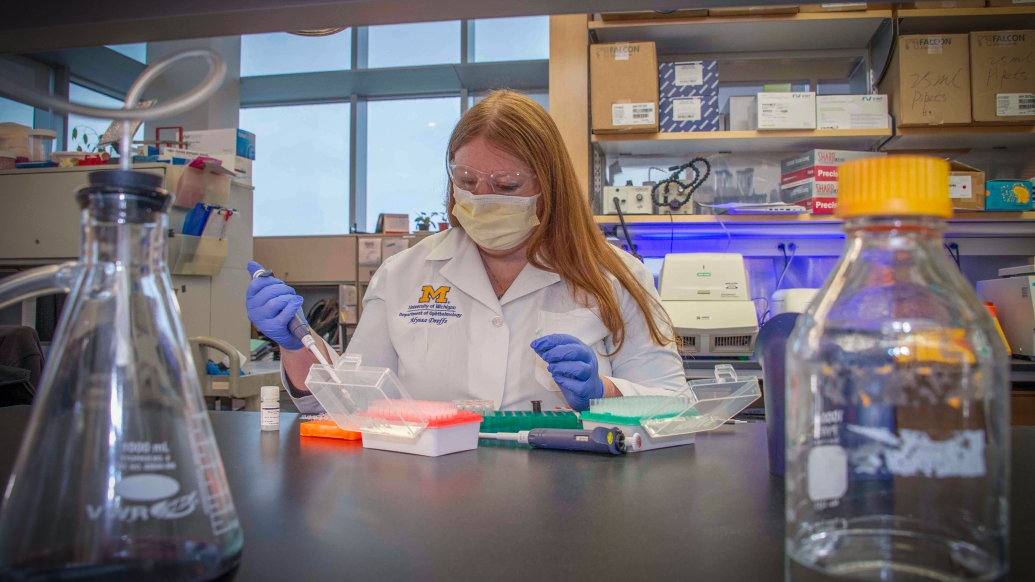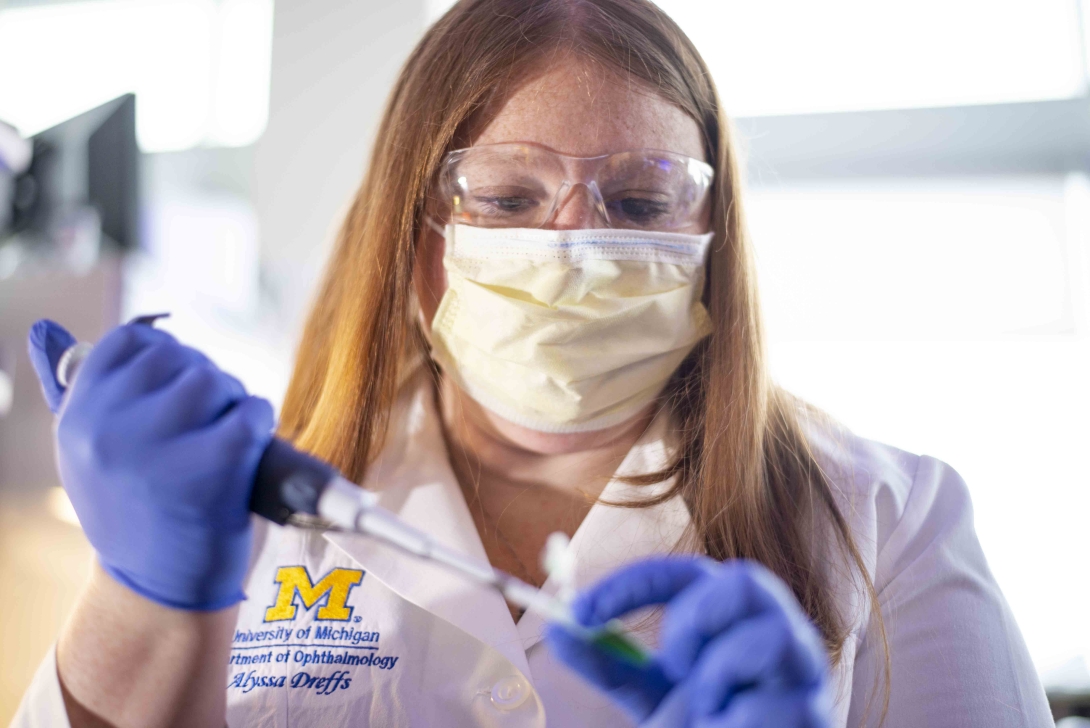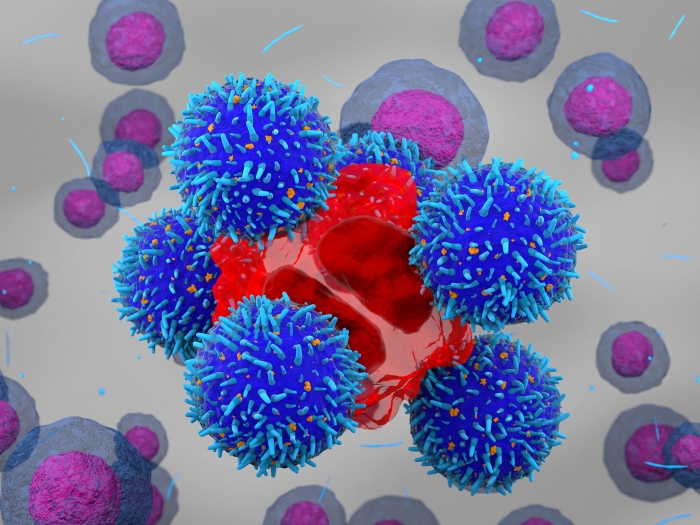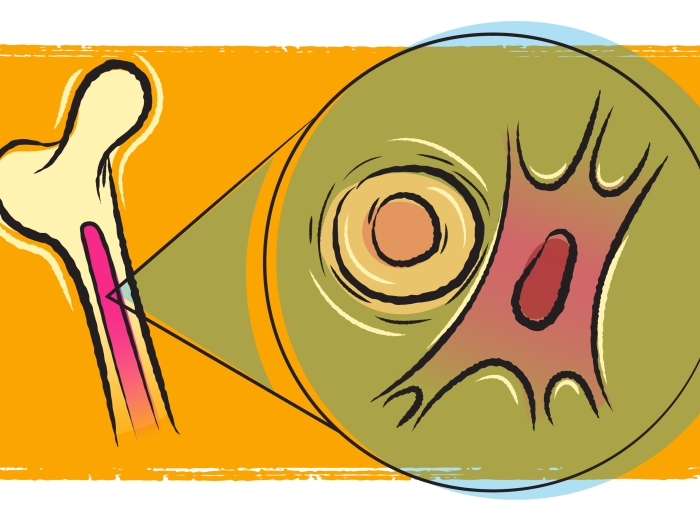Alyssa Dreffs, originally a patient, is now a researcher with personal motivation behind her work.
5:00 AM
Author |

The work Alyssa Dreffs does at Michigan Medicine is personal.
Dreffs is a diabetes researcher and research volunteer – she's also a patient with Type 1 Diabetes, and the daughter of a T1D patient.
As a child, Dreffs stumbled upon information about diabetes while reading about healthy smoothies – she noticed that the symptoms aligned with things she was experiencing. She was admitted to C.S. Mott upon her T1D diagnosis at 11 years old, and was later diagnosed with hyperthyroidism following continued weight loss and multiple low blood sugars.
As an adolescent with T1D, she initially refused an insulin pump. As she got older, her feelings changed.
“When you’re 11 or 12, you don’t want to be different at all,” she said, referring to the visibility of the pump. “Now, I love talking to people when they ask me questions. I’m happy to educate, especially when someone is considering it for themselves.”
Dreffs was used to constantly watching what she was consuming and monitoring how exercise impacted her insulin levels. But the knowledge that came from the pump was extremely informative to accommodating her lifestyle – it removed much of the worry and allowed her to adopt habits that worked best for her. Dreffs says this technology was nothing short of life changing;having a pump that would adjust her insulin level based on her activity gave her freedom she hadn’t known before. She was also thankful for the Diabetes Education provided to patients – she found it useful and timely information made specific for each individual.
For the last ten years, Dreffs has been fulfilling her desire to help advance diabetes research through her work in the lab with David Antonetti, Ph.D. In this lab, Dreffs and Antonetti work on mechanisms of vascular permeability in diabetic retinopathy, the role of the blood retinal barrier in normal physiology and the molecular mechanisms that underlie angiogenesis and neovascularization. These efforts have allowed Dreffs and her colleagues to develop new experimental treatments that show promising pre-clinical results.
I felt obligated to be involved in research from a young age. I think it’s important to let people know that changes and technology can’t be moved forward if people aren’t participating.
Alyssa Dreffs
Dreffs saw firsthand through her father's diabetes complications how distressing vision loss is, not only on the person with diabetes, but to their family as well. The work performed by Dreffs explores mechanisms of vision loss and while new therapies may take years of development to reach patients, she is encouraged by the discoveries and potential for clinical improvements.
“Alyssa is highly motivated and participates in a wide range of projects we have from exploring mechanisms of vision loss in diabetes to helping to develop potential new therapies,” said Antonetti. “I feel very lucky to have her as part of our team.”
Dreffs has also participated in research studies as a study volunteer and encourages others who can to do the same.

“I felt obligated to be involved in research from a young age. I think it’s important to let people know that changes and technology can’t be moved forward if people aren’t participating,” she said.
Dreffs knows that current treatments do not work for all – and though she, like everyone with diabetes, is eager for a cure, she knows it is pertinent to focus on making diabetes manageable for each person so they can thrive. Dreffs stressed that everyone is different – each person with diabetes has things that work for them. Different foods or activities will impact each person’s health differently.
The work done by Dreffs and Antonetti is work that the Caswell Diabetes Institute fosters – accelerating targeted research and discovery to lead to integration with patient centered clinical care. The institute focuses on advancing groundbreaking research that spans basic, clinical and translational science and sustaining partnerships that allow for strengthened innovative team science that leads to in-depth understanding of the biology and pathophysiology of diabetes. This comprehensive approach to attacking diabetes is unveiling and implementing optimal therapeutic strategies in clinical care for all people with diabetes. This will ultimately lead to the prevention and reversal of diabetes to improve lives.
“CDI is built on the idea that we can’t only study one aspect of diabetes, but rather that we need to work together to attack every piece of this disease at the same time,” said Caswell Diabetes Institute director Martin Myers, M.D., Ph.D.

Explore a variety of health care news & stories by visiting the Health Lab home page for more articles.

Department of Communication at Michigan Medicine
Want top health & research news weekly? Sign up for Health Lab’s newsletters today!





